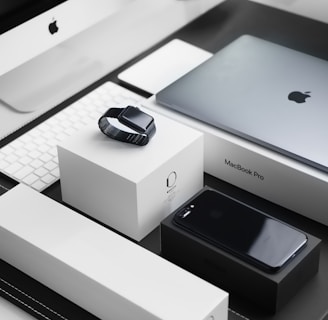Apple and Google’s $1 Billion AI Deal: What Gemini Means for Siri
Apple is set to pay Google $1 billion annually for Gemini AI to overhaul Siri—here’s how it reshapes voice assistants, privacy, and the future of AI.


Apple Nears $1 Billion-a-Year Deal to Use Google AI for Siri: What It Means and Why It Matters
Siri is about to get a major brain transplant—and it won’t be thanks to Apple’s own AI team. Instead, Apple’s next generation of Siri looks set to be powered by Google’s Gemini artificial intelligence, the result of a blockbuster deal reportedly worth $1 billion a year. This unlikely alliance promises to shake up the voice assistant wars, raise complex questions about privacy and control, and alter the future course for both tech giants.
Let’s pull back the curtain on what’s at stake, why Apple went this route, what users can expect, and what it all means for the future of AI.
Table of Contents
Why Apple Chose Google: The Urgency Behind the Deal
Gemini and Siri: How the Integration Will Work
Privacy, Control, and the Apple-Google Dynamic
How the Deal Impacts Users (and Rivals)
Expert Takes and Industry Reaction
What Happens Next: Timeline and Outlook
FAQ: Answers to Your Top Questions
External Resources
Why Apple Chose Google: The Urgency Behind the Deal
Here’s what I’ve learned watching Apple’s moves in artificial intelligence: Apple’s famously built its reputation around privacy and an in-house approach. So why would it shell out $1 billion a year—to its biggest smartphone rival, no less—for Google’s Gemini AI to power Siri?
Apple’s own AI models lag behind: Internally, Apple’s flagship AI runs at around 150 billion parameters. Google’s Gemini? A mind-bending 1.2 trillion.
Siri’s problems are well known: In real-world use, Siri has struggled to keep up with Alexa, Google Assistant, or ChatGPT when it comes to understanding context, handling multi-step tasks, or weaving in third-party data.
Apple ran an “AI bake-off”: According to Bloomberg, Apple tested models from multiple companies—Anthropic, OpenAI, and Google—and found Gemini delivered best on a mix of power, cost, and flexibility.
Delays forced Apple’s hand: Just this year, Apple pushed back its major Siri overhaul again, citing lagging in-house tech and management shakeups.
Did Apple really want to do this? No. But in today’s arms race for smarter assistants, waiting wasn’t an option.
Gemini and Siri: How the Integration Will Work
You might wonder, “Will Google suddenly control everything Siri does?” Not quite—it’s more nuanced, and Apple’s laying down some guardrails:
Gemini powers “summarizer” and “planner” parts of Siri—these are the brains behind understanding your question and mapping out complex, context-aware responses.
Some Siri features still use Apple’s own models: For basic commands and local tasks, Siri stays on homegrown tech.
No Google data sharing: Apple will run Gemini on its own servers, using its Private Cloud Compute platform. That means your voice data stays under Apple’s roof, not passed to Google.
A temporary alliance: Apple reportedly sees this as a stopgap—Gemini helps patch the gap while Apple’s next-gen AI (potentially ready in 2026) catches up.
Real-World Example
Think about asking: “Summarize my latest emails, book a table for dinner nearby, and remind me if I have any late-night meetings.” Right now, Siri buckles with this kind of context. With Gemini, expect Siri to weave multi-part queries, search the web in real time, and even mix responses across apps.
Privacy, Control, and the Apple-Google Dynamic
Apple and Google have been frenemies for years: Apple prides itself on privacy, while Google’s empire is built on data. It’s natural to ask, “Is Apple’s privacy-first ethos at risk?”
From what industry experts say and Apple’s own commitments:
Apple is keeping Gemini “sandboxed”—running it inside its own cloud infrastructure, ensuring neither Google employees nor Google servers touch user requests directly.
Apple retains veto power over what Gemini can access on your device—your photos, messages, and location aren’t getting piped to Google as part of this deal.
This alliance does not bring Google’s own search or chatbot into iOS—Siri gains Gemini’s raw smarts, but the Apple experience remains walled off.
Still, the move hints at the mounting pressure even Apple faces to deliver timely, competitive AI now—sometimes at the cost of deep-seated strategy or pride.
How the Deal Impacts Users (and Rivals)
Here’s what matters most if you’re in Apple’s ecosystem, or just watching the competition:
For Apple Users
Expect a much smarter Siri by next spring, with better understanding of follow-ups, real-time summarizations, and “multimodal” answers—mixes of text, images, and more.
Privacy will remain a priority, as Apple says user data stays secure.
Siri’s upgrade could extend beyond your iPhone—to Mac, iPad, and even Apple Watch and HomePod, marking a unified leap in user experience.
For Google and Everyone Else
Google cements itself as an AI leader outside its own ecosystem—unprecedented, given Apple’s desire for control.
This partnership puts pressure on OpenAI, Amazon, and others: can anyone else break into iOS at this scale?
Regulatory questions may loom. With a $1B deal and massive market reach, expect antitrust scrutiny, especially in the US and EU.
Expert Takes and Industry Reaction
You might be wondering, “What do industry insiders really think?”
Many analysts see this as a pragmatic move for Apple—a rare admission that, at least for now, its AI can’t match the big dogs.
For Google, this signals that market leadership in generative AI means more than just search—real use and real revenue.
Some observers worry about longer-term risk: will Apple’s reliance on Google become a permanent dependency? Or is this just a stopgap until Apple’s 2026 model arrives?
Personal Perspective
From my experience using voice assistants across platforms, whoever nails real natural language understanding first wins. If Gemini can deliver seamless, secure context for Siri—without trading privacy—it’s a game-changer for everyone on an Apple device.
What Happens Next: Timeline and Outlook
The overhauled Siri could debut as soon as spring 2026, bundled into iOS 26 or later.
Apple will likely keep working on its own AI models, aiming to gradually reduce dependence on Google once its own technology catches up.
If successful, the Gemini integration could extend beyond Siri—think deeper AI across Apple’s apps, Safari, Spotlight, and more.
Imagine a world where Apple's assistance doesn’t just react, but thinks, summarizes, and guides you in truly personal ways. If this alliance sticks the landing, we’re closer than ever.
FAQ: Apple, Google, Gemini, and Siri
Q: Does this mean Google Assistant is coming to the iPhone?
A: No—Google’s Gemini AI is being used as the “engine” beneath the new Siri. You won’t see Google branding and won’t interact with Google Assistant itself.
Q: Will my data be shared with Google?
A: Apple says all user data handled by Gemini remains within its own secure servers. Google will not have access to Siri queries or personal info.
Q: Why not use OpenAI or Anthropic?
A: According to reports, Apple ran tests with multiple vendors, and Google won on a mix of technical capability and cost.
Q: Will Siri finally be able to handle multi-step and follow-up questions?
A: That’s the plan—the Gemini-powered Siri will be much better with context and complex instructions.
Q: When can I try it?
A: Look for updates starting in spring 2026, likely as part of a major software refresh.
External Resource Suggestions
Key Takeaways: The Future of Siri and AI Partnerships
Apple’s $1B-per-year deal to use Google’s Gemini is nothing less than a bet-the-company move—not just for Apple, but for the future of AI for billions of users. It’s a reminder that in today’s tech landscape, even the most stubborn rivals sometimes need each other to leap forward. If all goes well, a Siri that finally “gets it” could be just months away. And that’s something worth talking about.
